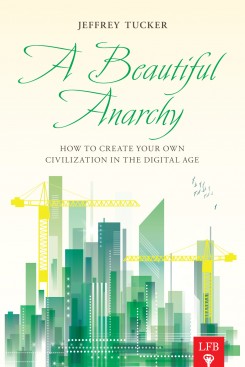Anarchy 101 at Lebanon Valley College
(Austrian) Economics, Anti-Statism, Education, Libertarian TheoryWell, technically, Anarchy 100, a seminar at Lebanon Valley College. I was alerted by a friend to this interesting course by Michael Kitchens, an Assistant Professor of Psychology. The reading materials include many articles and books from Austro-anarchists such as Roderick Long, Bob Murphy, Hans-Hermann Hoppe, Walter Block, Anthony Gregory, Tom DiLorenzo, Lew Rockwell, Rothbard, and myself. This is cool. The reading list would make a good book. From the course page:
SELECT RESOURCES/INFORMATION
Books
Introductory Essays on Anarchy
The State & Anarchy
- Anderson, T. L. & Hill, P. J. An American Experiment in Anarcho-Capitalism…
- Block, W. Libertarianism is Unique… Journal of Libertarian Studies
- Dilorenzo, T. J. The Culture of Violence in the American West. The Independent Review
- Rothbard, M. “Society Without a State”
- Mises, L. Liberalism (book)
- Murphy, R. P. “What are You Calling Anarchy?”
- Murphy, R. P. “Anarchy in Somalia”
- Long, R. T. Toward a Libertarian Theory of Class
Market Anarchy
- Hayek, F. A. The Use of Knowledge in Society The American Economic Review
- Taylor, T. C. An Introduction to Austrian Economics (book)
- Tucker, J. “Does Favoring Free Enterprise Mean Favoring Business?”
Justice Anarchy
- Kinsella, N. S. “Introduction to Libertarian Legal Theory”
- (A series of resources are listed at the end of this article)
- Kinsella, N. S. “Legislation and Law in a Free Society”
- Murphy, R. P. “The Possibility of Private Law”
- Murphy, R. P. “Law and Appeals in a Free Society”
- Murphy, R. P. “The Possibility of Private Law”
- Gregory, A. “Abolish the Police”
Defense & Security
- Hoppe, H. H. The Myth of National Defense (book)
- Murphy, R. P. “Policing for Profit”
- Murphy, R. P. Chaos Theory (book/monograph)
- Murphy, R. P. “Private Defense is No Laughing Matter”
Roads & Highways
- Block, W. “A Future of Private Roads and Highways”
- Block, W. The Privitization of Roads and Highways (book)
Civilization, Culture, & Life
- Kinsella, N. S. Against Intellectual Property (book/monograph)
- Kinsella, N. S. & Tucker, J. Goods, Scarce & NonScarce
- Kinsella, N. S. Intellectual Property and Libertarianism
- Tucker, J. How Blessed is the State that Thus Destroyeth the Car
- Tucker, J. McDonald’s as the Paradigm for Progress
- Tucker, J. Pushing Buttons Like the Jetsons
Anarchy 101 at Lebanon Valley College Read Post »


 …
…


